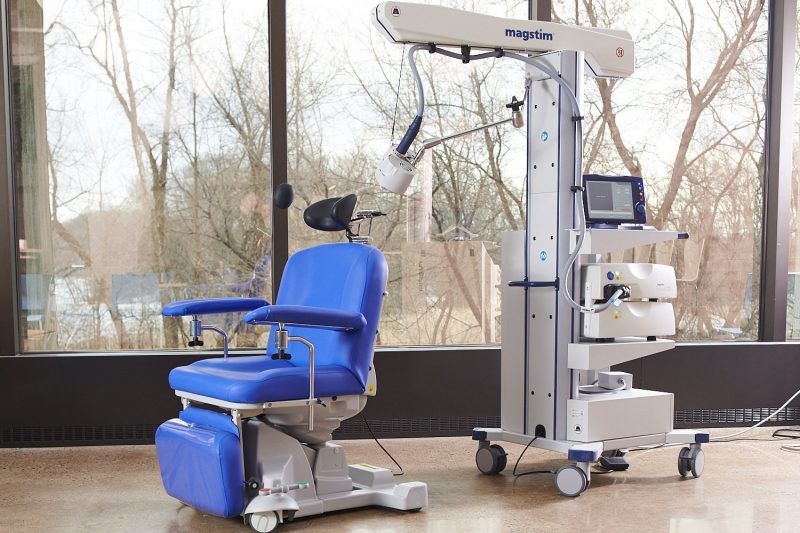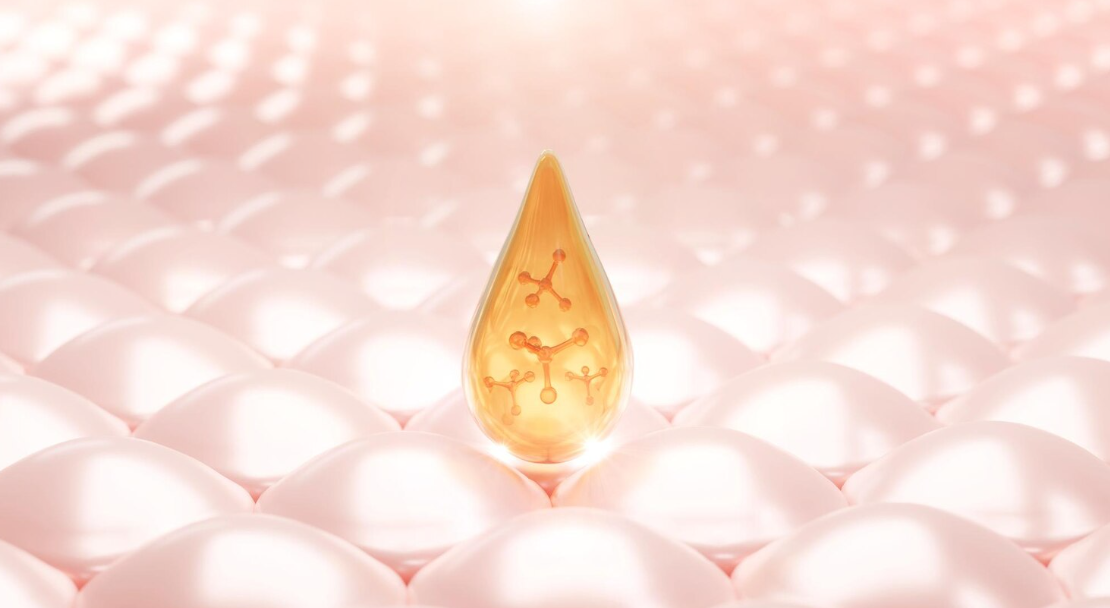Discover Non Medication Treatment For Depression | TMS Therapy

Navigation links
Free Consultation
It's important to know that you are not alone. Get help with depression today!
TMS THERAPY SUPPORTS MENTAL WELLNESS
- Depression
- Lack of Joy
- Sadness and Despair
- Low Mood
- Lethargy
- Insomnia
- Oversleeping
- Social Isolation
- Self-Harm
- Substance Abuse
- Suicidal Ideation
- Alcoholism
Welcome to Unchained Wellness Clinic in Gilbert Arizona, where we specialize in non-pharmacological treatment for depression to improve lifestyles and mental health. Our holistic mental wellness approach empowers individuals through innovative treatments, including Transcranial Magnetic Stimulation (TMS) therapy.
TMS therapy is a non-invasive outpatient procedure that effectively treats depression without medication. At Unchained, we believe in combining TMS therapy with lifestyle changes such as exercise, balanced nutrition, stress management, quality sleep, and social support to enhance treatment outcomes. With our state-of-the-art MagVenture TMS device, we offer the highest standard of care.
Break free from depression and discover a life of vitality and well-being at Unchained Wellness Clinic. Together with our dedicated team of experts, we empower individuals to rise above the limitations of depression, embrace a life filled with purpose and joy, and discover the incredible strength they possess within themselves.
Understanding TMS Therapy
TMS Therapy, short for Transcranial Magnetic Stimulation, is a revolutionary non-invasive treatment that holds the power to transform lives affected by depression. At Unchained Wellness Clinic, we are proud to offer this cutting-edge therapy that goes beyond traditional approaches.
By harnessing the strength of magnetic fields, TMS therapy stimulates specific regions of the brain associated with mood regulation, igniting a path to healing without the need for medication. This safe and gentle procedure opens new doors of hope and possibility for individuals seeking a fresh perspective on their mental health journey.
How Does TMS Therapy Work?
During a TMS session, a specialized device, such as the MagVenture TMS device we utilize, delivers precisely targeted magnetic pulses to the brain. These pulses generate tiny electrical currents that activate underactive regions and restore balance to the intricate neural pathways involved in mood regulation.
By stimulating and reinvigorating the brain's natural processes, TMS therapy breathes new life into those battling depression, offering a beacon of light in the darkest times.
Benefits of TMS Therapy
TMS therapy offers many advantages that set it apart from traditional treatment approaches.
Unlike pharmaceutical interventions that may introduce unwanted side effects, TMS therapy embraces a medication-free path to healing. This benefit alleviates concerns about potential adverse reactions and provides an empowering alternative for those seeking a more holistic and natural approach to their well-being.
Additionally, individuals can receive the care they need without disrupting their daily lives or enduring the constraints of a hospital stay. Flexibility and convenience intertwine to redefine the treatment landscape, empowering individuals to take control of their mental health journey on their terms.
Beyond these benefits, TMS therapy is:
- Non-Invasive: It does not require sedation, ensuring a comfortable experience.
- Well-Tolerated: The treatment has minimal side effects compared to traditional psychiatric medications.
- FDA-Approved: TMS Therapy has FDA approval for treating depression, supported by extensive clinical research.
- Drug-Free: As an alternative to traditional treatments, TMS reduces the risk of medication-related side effects.
Many patients experience significant and sustained relief from symptoms after completing a course of TMS Therapy. It is more than a treatment—it's a revolution in mental health care.
Lifestyle Changes and TMS Therapy: Enhance Treatment Outcomes
At Unchained Wellness Clinic, we firmly believe that the path to healing extends far beyond the confines of any single treatment (despite the incredible benefits TMS offers on its own). To unlock the full potential of TMS therapy and enhance its outcomes, we encourage and embrace the power of lifestyle changes.
By incorporating positive shifts in various aspects of life, individuals undergoing TMS therapy can unlock their inner strength and achieve profound transformation in their battle against depression.
#1 - Exercise and Physical Activity
Engaging in regular exercise and physical activity not only benefits the body but also nurtures the mind. Research continuously shows the profound impact of exercise on mental health, with its ability to boost mood, reduce symptoms of depression, and increase overall well-being.
When combined with TMS therapy, exercise acts as a catalyst, amplifying the therapeutic effects and helping individuals break free from the grip of depression.
#2 - Balanced Nutrition
Nourishing the body with a balanced and nutrient-rich diet is essential for physical and mental well-being. A diet rich in whole foods, including fruits, vegetables, lean proteins, and healthy fats, provides the foundation for optimal brain function and mood regulation.
By fueling the body with the nutrients it needs, individuals can support the healing process of TMS therapy and experience enhanced overall well-being.
#3 - Stress Management Techniques
Stress has a profound impact on mental health, exacerbating symptoms of depression and hindering the healing process. Implementing effective stress management techniques is a vital component of supporting TMS therapy.
Practices such as mindfulness, meditation, deep breathing exercises, and relaxation techniques can help individuals cultivate inner calm, reduce stress levels, and create a healing environment for the benefits of TMS therapy to flourish.
#4 - Sleep Hygiene
Quality sleep is the cornerstone of mental and physical well-being. Establishing good sleep hygiene practices ensures that individuals undergoing TMS therapy optimize their restorative sleep cycles.
By creating a sleep-friendly environment, adhering to a regular sleep schedule, and practicing relaxation techniques before bed, individuals can enhance the regenerative effects of TMS therapy and promote overall mental wellness.
#5 - Social Support and Connection
We should always appreciate the power of human connection. Maintaining a strong support network and fostering meaningful social interactions can significantly impact an individual's mental health journey.
Engaging in activities that promote social support, such as joining support groups or participating in community events, can provide a sense of belonging, understanding, and encouragement. These connections offer a valuable source of strength, resilience, and motivation throughout the TMS therapy journey.
By embracing these lifestyle changes in tandem with TMS therapy, individuals open the door to a transformative experience. At Unchained, we empower our clients to embrace these shifts, providing the tools, guidance, and unwavering support needed to redefine their lives.
Together, we unleash the true potential within, unlocking a path to lasting well-being and freeing individuals from the chains of depression.
Transform Your Life with TMS Therapy & a Healthy Lifestyle
Unchained Wellness Clinic in Gilbert, Arizona, offers a non-prescriptive approach to mental health and well-being through innovative treatments like non-invasive, medication-free TMS therapy. By incorporating lifestyle changes, we can amplify the healing potential of TMS and empower individuals to embark on a transformative journey toward lasting well-being.
If you or a loved one is seeking an alternative path to treating depression and improving your overall lifestyle, we invite you to consider TMS therapy at Unchained. Our compassionate team of experts provides the support and guidance you need to break free from the chains of depression and embrace life. Take the first step toward reclaiming the life you deserve today.
Life's got problems. We got answers. Your new chapter begins at Unchained Wellness Clinic.



